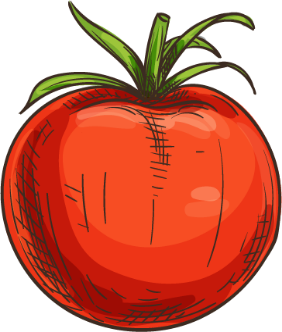
Get Schools Cooking
Our Get Schools Cooking program helps school districts transition from a heat-and-serve to a scratch-cooking operational model so they can serve students fresher, healthier, and more appetizing meals.
Applications are currently closed. Sign up for the interest list below to be notified when applications open again.

Get Schools Cooking
Our Get Schools Cooking program helps school districts transition from a heat-and-serve to a scratch-cooking operational model so they can serve students fresher, healthier, and more appetizing meals.
Applications are currently closed. Sign up for the interest list below to be notified when applications open again.
Overview
Get Schools Cooking is an intensive three-year assessment and strategic planning program that provides public K-12 schools with comprehensive support to transition from a heat-and-serve to a scratch-cooking operational model.
We work with districts to asses five key areas of their school food service programs — food, finance, facilities, human resources, and marketing — and identify practical steps they can take to move toward scratch cooking. We also provide system improvement grants to support implementing our recommendations.
Get Schools Cooking applications open every 18 months. Applications are currently closed.
Get Schools Cooking is open to school districts across the country thanks to generous funding support from Whole Kids, The Rachael Ray Foundation, Waverley Street Foundation, and other donors.
Program Details
Districts participating in Get Schools Cooking complete the following program components over a three-year period.

Workshop
Districts attend a two-day workshop where they will:
- Receive a detailed overview of the Get Schools Program, including its history and expectations for participating in the program
- Review foundational strategies for successful school food reform through sessions such as recipe development, the importance of financial tracking, and how to support staff to create change
- Tour a partner district’s school food operation to discuss what it is like working with the Chef Ann Foundation and to see a scratch-cooking program in action

School Food Institute Courses
Districts receive two Gold Certificates to Chef Ann Foundation’s virtual School Food Institute. Each Gold Certificate represents 8 courses, selected from the 11 available courses, including School Food Procurement, Recipes & Menu Development, Salad Bars in Schools, and more. Each course is self-paced and meets USDA professional standards learning objectives.

On-Site Assessment
Chef Ann Foundation’s school food experts observe and assess all aspects a district’s current school food practices and collect data to provide recommended actions to improve five key areas of school food operations:
- Food including procurement, commodities, recipe, and menu development;
- Finance including budget development, meal counts, and eligibility processing;
- Facilities including salad bars, cooking equipment, and service equipment;
- Human resources including job descriptions, professional development, and staffing structure; and
- Marketing including communications with students and parents, social media presences, website presence, and branding.

Assessment Report
After completing their on-site assessment, districts receive a report that includes recommendations for next steps. The report also serves as a guide for working with school leadership and the school community.
Chef Ann Foundation’s research partners will also conduct a baseline procurement assessment, and provide a baseline score of the healthfulness of the school meals currently being served.

Strategic Planning
Chef Ann Foundation’s school food experts provide district leaders a strategic plan to review the recommendations from the assessment report and the actions the district would need to take to start or expand its scratch cooking operations.

Technical Assistance
The Chef Ann Foundation will provide districts both on-site and one-on-one virtual technical assistance support in the areas identified in the assessment report. Areas include, but are not limited to: culinary skills, kitchen efficiency, budget development, staffing planning, recipe development, and/or marketing. Past districts have used additional technical assistance to:
- eliminate flavored milk from their menus;
- accurately update their financial tracking tools; and
- develop new recipes and kitchen efficiencies.

Connect and Reflect
We host peer-to-peer support sessions that offer space for districts to discuss current school food topics, share information, and learn what other districts are doing across Get Schools Cooking cohorts.

Systems Assistance Grant
Districts have the opportunity to apply for a one-time systems assistance grant that is designed to support the identified needs and goals of their program. This grant has been used by past participants to:
- purchase kitchen equipment used to prepare scratch cooked meals;
- implement salad bars that support the consumption of a wide variety of fresh fruits and vegetables;
- purchase software that allows districts to track inventory, manage production records, and incorporate new recipes; and
- train staff on recipe development and testing.

Evaluations
Districts participate in ongoing qualitative interviews and submit current program data to measure their progress starting or expanding their scratch cooking operations. The Chef Ann Foundation and its research partners complete a comprehensive evaluation of change management and generate a follow-up procurement assessment to gauge the connection between scratch cooking and value-based procurement.
Eligibility
Get Schools Cooking is open to school districts across the U.S. To apply, districts must:
- Be firmly committed to working toward a scratch-cooked and fresh whole foods approach to their meal programs
- Participate in the National School Lunch Program
- Run a self-operated food service program
- Demonstrate support for improving school meals from district leadership
Timeline
- Application opens: August 1, 2024
- Application closes: September 30, 2024
- Selected districts notified: November - December 2024
- Workshop: February 2025
- On-site assessments: March 2025 - November 2025
- On-site technical assistance visits: Fall 2025 - Spring 2026
- Final evaluation: Spring 2027
I can’t explain how informative, beneficial, and invigorating this whole experience has been. It’s really made me a better director and leader and I can see my staff are happy with the changes I’ve put into place thus far.
Previous Participants
Since 2016, Get Schools Cooking has helped 27 districts in 21 states collectively serve more scratch-cooked school meals to an estimated 180,000 students.
Previous participants have:
- Introduced new scratch-cooked recipes, such as meatballs, hummus, salmon cakes, and chickpea masala
- Installed salad bars
- Added new vendors to procure local products
- Eliminated highly processed products such as chicken nuggets, pizza, and packaged sandwiches
- Gained community support for their meal programs through increased communications and involvement in food service department events
- Introduced raw proteins such as whole muscle chicken, as well as expanded fresh fruit and vegetable procurement and variety
- Implemented software systems to create program efficiencies
Cohorts
1st Cohort
- Bellingham Public Schools (Bellingham, WA)
- Buford City Schools (Buford, GA)
- Passaic Public Schools (Passaic, NJ)
- Watertown Public Schools (Watertown, MA)
2nd Cohort
- Brewster Central School District (Brewster, NY)
- Fridley Public Schools (Fridley, MN)
- Norwood City School District (Norwood, OH)
- Ocean View School District (Oxnard, CA)
- Oxford School District (Oxford, MS)
- Staunton City Schools (Staunton, VA)
- Tempe Elementary School District (Tempe, AZ)
3rd Cohort
- Caroline County Public Schools (Denton, MD)
- Goleta Union School District (Goleta, CA)
- Marysville Joint Unified School District (Marysville, CA)
- Napa Valley Unified School District (Napa, CA)
4th Cohort
- Beaufort County Schools (Washington, NC)
- Franklin Special School District (Franklin, TN)
- Manhattan-Ogden USD 383 (Manhattan, KS)
- South Madison Community School Corporation (Pendleton, IN)
- Wisconsin Rapids Public Schools (Wisconsin Rapids, WI)
5th Cohort
- Brownsville Independent School District (Brownsville, TX)
- Dillingham School District (Dillingham, AK)
- Ellensburg School District (Ellensburg, WA)
- Hardin Public Schools (Hardin, MT)
- Howard-Suamico School District (Green Bay, WI)
- Lewiston Public Schools (Lewiston, ME)
- Windham Central Supervisory Union (Townshend, VT)
6th Cohort
- Yuma Union High School District (Yuma, AZ)
- Fairfield City Schools (Fairfield, Alabama)
- Cleveland Metropolitan School District (Cleveland, OH)
- Santa Fe Public School District (Santa Fe, NM)
- Elida Municipal Schools (Elida, NM)
Program Flyer
Would you like to share information about the Get Schools Cooking grant program?

Download Below
SPECIAL THANKS TO OUR PROGRAM PARTNERS
Discover More
Salad Bars to Schools
Salad Bars to Schools (SB2S) provides salad bar packages to help school districts expand their commitment to serving fresh fruits and vegetables.
Bulk Milk
Our Bulk Milk program helps schools transition from serving milk in single-serve containers to serving milk using bulk dispensers and reusable cups. Making the switch drastically cuts milk packaging and liquid milk waste, reduces energy emissions, and lowers costs for schools.








